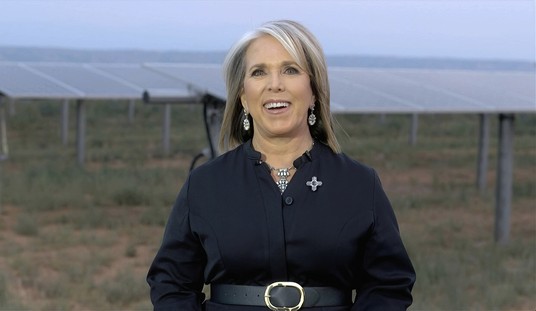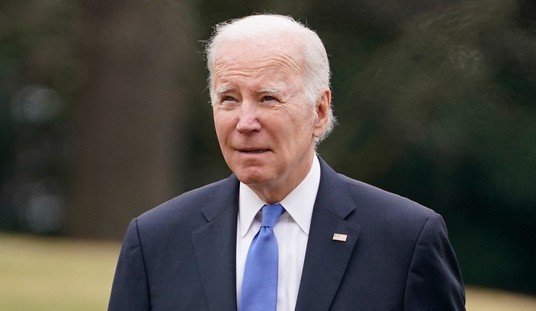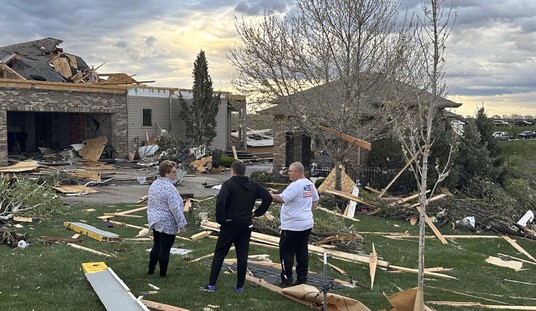If ever the people of the United States rise up and fight over passage of Obamacare, Harry Reid must be remembered as the man who sacrificed the dignity of his office for a few pieces of silver. The rules of fair play that have kept the basic integrity of the Republic alive have died with Harry Reid. Reid has slipped in a provision into the health care legislation prohibiting future Congresses from changing any regulations imposed on Americans by the Independent Medicare [note: originally referred to as “medical”] Advisory Boards, which are commonly called the “Death Panels.”
It was Reid leading the Democrats who ignored 200 years of Senate precedents to rule that Senator Sanders could withdraw his amendment while it was being read.
It was Reid leading the Democrats who has determined again and again over the past few days that hundreds of years of accumulated Senate parliamentary rulings have no bearing on the health care vote.
On December 21, 2009, however, Harry Reid sold out the Republic in toto.
Upon examination of Senator Harry Reid’s amendment to the health care legislation, Senators discovered section 3403. That section changes the rules of the United States Senate.
To change the rules of the United States Senate, there must be sixty-seven votes.
Section 3403 of Senator Harry Reid’s amendment requires that “it shall not be in order in the Senate or the House of Representatives to consider any bill, resolution, amendment, or conference report that would repeal or otherwise change this subsection.” The good news is that this only applies to one section of the Obamacare legislation. The bad news is that it applies to regulations imposed on doctors and patients by the Independent Medicare Advisory Boards a/k/a the Death Panels.
Section 3403 of Senator Reid’s legislation also states, “Notwithstanding rule XV of the Standing Rules of the Senate, a committee amendment described in subparagraph (A) may include matter not within the jurisdiction of the Committee on Finance if that matter is relevant to a proposal contained in the bill submitted under subsection (c)(3).” In short, it sets up a rule to ignore another Senate rule.
Senator Jim DeMint confronted the Democrats over Reid’s language. In the past, the Senate Parliamentarian has repeatedly determined that any legislation that also changes the internal standing rules of the Senate must have a two-thirds vote to pass because to change Senate rules, a two-thirds vote is required. Today, the Senate President, acting on the advice of the Senate Parliamentarian, ruled that these rules changes are actually just procedural changes and, despite what the actual words of the legislation say, are not rules changes. Therefore, a two-thirds vote is not needed in contravention to longstanding Senate precedent.
How is that constitutional? It is just like the filibuster. Only 51 votes are needed to pass the amendments, but internally, the Senate is deciding that it will not consider certain business. The Supreme Court is quite clear that it won’t meddle with the internal operations of the House and Senate. To get around the prohibition on considering amendments to that particular subsection of the health care legislation, the Senate must get two-thirds of the Senate to agree to waive the rule. In other words, it will take a super-majority of the people the citizens of our Republican elected to overrule a regulation imposed by a group of faceless bureaucrats and bean counters.
Here is the transcript of the exchange between Jim DeMint and the Senate President:
DEMINT: But, Mr. President, as the chair has confirmed, Rule 22, paragraph 2, of the standing rules of the Senate, states that on a measure or motion to amend the Senate rules, the necessary affirmative vote shall be two-thirds of the senators present and voting. Let me go to the bill before us, because buried deep within the over 2,000 pages of this bill, we find a rather substantial change to the standing rules of the Senate. It is section 3403 and it begins on page 1,000 of the Reid substitute. . . . These provisions not only amend certain rules, they waive certain rules and create entirely new rules out of whole cloth.”
The Senate President disagreed and said it was a change in procedure, not a change in rules, therefore the Senate precedent that a two-thirds vote is required to change the rules of the Senate does not apply.
Senator DeMint responded:
DEMINT: and so the language you see in this bill that specifically refers to a change in a rule is not a rule change, it’s a procedure change?
THE PRESIDING OFFICER: that is correct.
DEMINT: then i guess our rules mean nothing, do they, if they can re define them. thank you. and i do yield back.
THE PRESIDING OFFICER: the senate stands adjourned until 7:00 a.m. tomorrow.
That’s right. When confronted with the facts, the Senate Democrats ran for cover. The Senate Democrats are ignoring the constitution, the law, and their own rules to pass Obamacare.
To quote the Declaration of Indepedence:
When in the Course of human events it becomes necessary for one people to dissolve the political bands which have connected them with another and to assume among the powers of the earth, the separate and equal station to which the Laws of Nature and of Nature’s God entitle them, a decent respect to the opinions of mankind requires that they should declare the causes which impel them to the separation.
This, Ladies and Gentlemen, is one of those causes. When the men and women who run this nation, which is supposedly a nation of laws not men, choose to ignore the laws and bribe the men, the people cannot be blamed for wanting to dissolve political bands connecting them to that government.
UPDATED: A number of people on our side are saying I’m making a mountain out of a mole hill on this issue. I hope they and you, after reading this, will read this response to that criticism.
For your edification, the full transcript of the exchange between Jim DeMint and the Senate President is presented, unedited, below the fold.
————————————————————————————-
7:30 PM
PRESIDENT, I YIELD THE FLOOR. DEMINT
not. mr. president, i yield the floor. mr. demint: mr. president?
THE PRESIDING OFFICER
the senator from south carolina.
DEMINT
mr. president, i ask unanimous consent that i be allowed to speak for ten minutes.
THE PRESIDING OFFICER
without objection.
DEMINT
parliamentary inquiry, mr. president. does rule 22 of the standing rules of the senate provide that on a measure or motion to amend the senate rules, the necessary affirmative vote shall be two-thirds of the senators present and voting?
7:31 PM
THE PRESIDING OFFICER
it does.
DEMINT
further parliamentary inquiry. is it also the case that on numerous occasions, the senate has required a two-thirds cloture vote on bills that combine amendments to senate rules with other legislative provisions that do not amend the rules?
THE PRESIDING OFFICER
that would require a two-thirds vote.
DEMINT
i have numerous examples here. we did it twice this year on senate bill 2349 and i could read those but i’ll spare the chair all of these. i’m just trying to get at a concern we have here. am i correct that with respect to these bills, there was a combination of legislative provision and rules changes and the chair ruled that because they were — and i’m referring, mr. chairman, to the — earlier this year, those he
referred to where we required the two-thirds cloture. am i correct on these previous bills that with respect to the bills, there was a combination of legislative provisions and rules changes and the chair ruled that because there were rules changes, a two-thirds vote was required?
7:32 PM
THE PRESIDING OFFICER
if there were changes to the standing rules of the senate, a two-thirds vote would have been required to invoke cloture.
DEMINT
i thank the chair. mr. president, am i also correct that the senate has required a two-thirds cloture on amendments to bills where the amendments combine legislative provisions
and rules changes?
i have a number of references on bills that this was done if there’s any question, and i have given them to the parliamentarian for consideration. is there an answer? i mean, i know that there have been amendments to bills that we required two-thirds because they include rule changes. i just wanted to get a confirmation from our parliamentarian. is that, in fact, the case, where two-thirds cloture on amendments to bills have been required to have a two-thirds vote because
there were rules changes included in them?
7:34 PM
THE PRESIDING OFFICER
the chair would like to check that for a future answer.
DEMINT
okay. i believe the parliamentarian does have some of the references of times this has been done. we’re quite certain it has. but, mr. president, as the chair has confirmed, rule 22, paragraph 2, of the standing rules of the senate, states that on a measure or motion to amend the senate rules, the necessary affirmative vote shall be two-thirds of the senators present and voting. let me go to the bill before us, because buried deep within the over 2,000 pages of this bill, we find a rather substantial change to the standing rules of
the senate. it is section 3403 and it begins on page 1,000 of the reid substitute. these provisions not only amend certain rules, they waive certain rules and create entirely new rules out of whole cloth. again, i’ll skip over some examples but let me read a few of these provisions that amend the senate rules which are contained in section 3403 of the reid substitute. it’s section d, titled referral. the legislation introduced
under this paragraph shall be referred to the presiding officers of the prospective houses, to the committee on finance in the senate, and to the committee on energy and commerce, and the committee on ways and means in the house of representatives. the bill creates out of whole cloth a new rule that this specific bill must be referred to the senate finance committee. another example under section c, titled “committee jurisdiction.” and it references rule here. “notwithstanding
rule 15 of the standing rules of the senate, a committee amendment described in subparagraph a may include matter not within the jurisdiction of the committee on finance if that matter is relevant to a proposal contained in the bill submitted under subsection c-3. clearly a rule change. so there’s no pretense that this bill is being referred under the rules of the committee of jurisdiction. and now it is allowing the finance committee to add whatever matter it wants to the
bill, regardless of any rules regarding committee jurisdiction. and of good measure, the bill even specifically states that it is amending rule 15. let me just skip over a number of other examples referring to rules just to try to get to the — the point here. because it goes on and on, and i’ve got pages here. but there’s one provision that i found particularly troubling and it’s under section c, titled “limitations on changes to
this subsection.” and i quote — “it shall not be in order in the senate or the house of representatives to consider any bill, resolution, amendment, or conference report that would repeal or otherwise change this subsection.” this is not legislation. it’s not law. this is a rule change. it’s a pretty big deal. we will be passing a new law and at the same time creating a senate rule that makes it out of order to amend or even repeal the law. i’m not even sure that it’s constitutional, but if it is, it most certainly is a senate
rule. i don’t see why the majority party wouldn’t put this in every bill. if you like your law, you most certainly would want it to have force for future senates. i mean, we want to bind future congresses. this goes to the fundamental purpose of senate rules: to prevent a tyrannical majority from trampling the rights of the minority or of future co congresses. mr. president, therefore, i would like to propound a parliamentary inquiry to the chair. does section 3403 of this
bill propose amendments to the standing rules of the standing rules of the senate? and further parliamentary inquiry. does the inclusion of these proposed amendments to the senate rules mean that the bill requires two-thirds present and voting to invoke cloture?
7:38 PM
THE PRESIDING OFFICER
the section of the proposed legislation addressed by the senator is not — does not amend the standing rules. the standing rules of the senate.
DEMINT
okay. mr. president —
THE PRESIDING OFFICER
and, therefore, its inclusion does not affect the number of votes required to invoke cloture.
DEMINT
mr. president, is the chair aware of any precedent where the senate created a new law and in doing so created a new rule — and i’m quoting from our bill — “it shall not be in order in the senate or the house of representatives to consider any bill, resolution, amendment or conference report that would repeal or otherwise change the law.” is the chair aware that we have ever put this type of binding legislation on future congresses in a bill?
7:39 PM
THE PRESIDING OFFICER
it is quite common to do that.
DEMINT
i would ask the chair to get those references, if the parliamentarian would, to us. mr. president, another parliamentary inquiry. if this new law will operate as a senate rule, making it out of order for senators to propose amendments to repeal or amend it it — i’ve been in congress 11 years. i have not ever heard of an amendment being called out of order because it changes something that was done before. you know, how is that different from the types of senate rule making for which our predecessors in their wisdom provided a two-thirds cloture vote?
this seems to be a redefinition of words in my mind. mr. president, it’s clear that the parliamentarian is — is going to redefine words, as i’m afraid he has done as part of this process before, but this is truly historic, that we have included rules changes in legislation. we have included rules changes in this legislation yet we’re ignoring a rule that requires a two-thirds cloture vote to pass it. i believe that
it’s unconstitutional. it subverts the principles that — i believe it subverts the principles that we’ve operated under and it’s very obvious to everyone that it does change a rule. mr. president, it’s clear that our rules mean nothing if we can redefine the words that we use in them. and i yield the floor.
7:40 PM
THE PRESIDING OFFICER
the chair will note that it is quite common to include provisions affecting senate procedure in legislation.
7:41 PM
DEMINT
is there a difference between senate procedures and rules?
THE PRESIDING OFFICER
yes.
DEMINT
and so the language you see in this bill that specifically refers to a change in a rule is not a rule change, it’s a procedure change?
THE PRESIDING OFFICER
that is correct.
DEMINT
then i guess our rules mean nothing, do they, if they can re define them. thank you. and i do yield back.
THE PRESIDING OFFICER
the senate stands adjourned until 7:00 a.m. tomorrow.













Join the conversation as a VIP Member